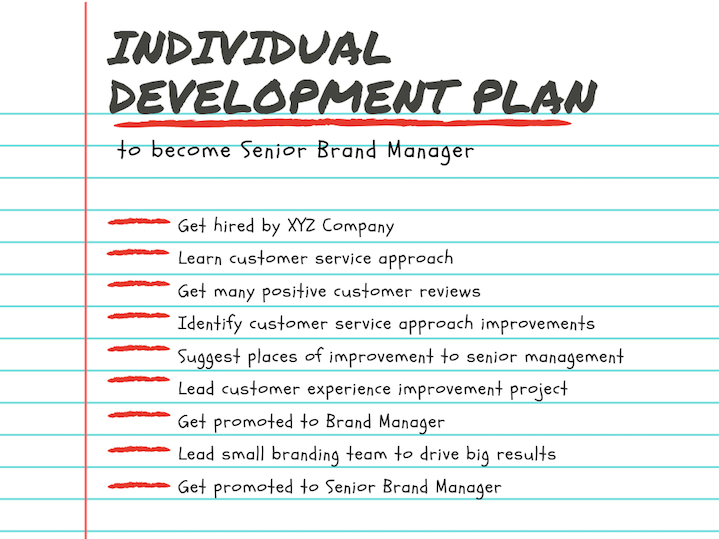Career Advice
How to Answer “What Are Your Career Aspirations?”

Congratulations! You’ve landed yourself an interview after weeks of job searching.
The only thing left to do is make a good impression on the interviewer. Leave a good impression during the interview, and start your new job next week!
The key to a successful interview, however, lies in preparation.
Why Interviewers Ask “What are Your Career Aspirations?”
“What are your career aspirations?”
This is a very common question to ask during the interview. It is open-ended, allows the interviewer to catch a glimpse of your career goals, and allows you to let your passion shine!
But… why do interviewers ask this?
What are interviewers looking for when they ask, “What are your career aspirations?”
This question may appear in a variety of formats, such as:
- Where do you see yourself in 5 years from now?
- What advances are you looking to make in your career?
- What are your goals for your future?
Despite their differences, they share a common goal: Interviewers ask them to identify if you are a good fit for the company.
How to Answer “What are Your Career Aspirations?”
In your answer, you should:
- Be honest about your passions and career aspirations.
- Align your passions and career aspirations with the company’s values and services.
- Emphasise growth, and outline examples of how working in the company can lead to your personal growth.
- Show enthusiasm for the role. Natural enthusiasm and passion reflects dedication for the role. Passion is also contagious! Employers are more likely to hire someone enthusiastic and dedicated to the job.
Defining Career Aspirations vs Career Goals
Career Aspirations and Career Goals may often be used interchangeably. However, they aren’t the same thing!
Aspirations are long-term goals. They act as markers and destinations along your career journey.
Meanwhile, goals are short-term action items. They are the stepping stones you conquer along the way to achieve your career aspiration.
An example of a career aspiration is to hone your interpersonal skills as a social worker, to help the elderly achieve a better quality of life. To help fulfil that aspiration, one goal would be to get a job with a non-profit organization. Another goal would be to attend a class to learn a new language, such as Cantonese or Teochew.
How to Identify Your Career Aspirations
With that said, how do you identify your career aspirations?
Having a hard time thinking of answers on your own? Here are a few further steps you can take to identify your personal aspirations.
Reflect and Question Yourself
Start by thinking about why you wanted this job in the first place.
- What is important in your life?
- What do you like to do?
- Which work areas are you good at?
- Which work areas are you not good at?
- What are your personal strengths and weaknesses?
Write these answers down in a journal. Reflect on your career aspirations and progress regularly. Set some career goals to meet these aspirations.
Review Your Resume
Take a look at your current resume. Does it accurately reflect your career history?
If not, it’s time to update your resume.
Showcase your strengths and accomplishments in your resume. Include more skills in your resume. Optimise your resume by crafting a unique career narrative, and playing up your achievements.
Ask yourself:
- If you could add one thing to your resume, what would it be? An area of improvement in your career could be a potential career aspiration to strive towards.
- How can you improve your skillsets? Are there any skills you’ve always wanted to develop even further? Your answers could form the goals you need to conquer to work towards this larger aspiration.
Create an Individual Development Plan
You’ve identified some goals and some of your aspirations are in life. Great!
With these goals and aspirations in mind, design an Individual Development Plan.
An Individual Development Plan is a how-to guide to reach a single aspiration. It can help you align your career aspirations with the advertised job.
During your interview, focus on an aspiration that is relevant to your career. This way, you can explain to the recruiter how your personal development will work well alongside their company.
Creating an Individual Development Plan is simple:
- At the bottom of the page, write down your aspiration.
- Working backwards, write all the actionable steps – goals – you need to do to get there. This can include promotions, client acquisitions, or major projects.
- As you write, think about how the company you’re interviewing for impacts these goals. How can the company help you meet your personal career goals? Where can they aid in your development?
- Write down every goal until you get to “get hired by [the company you’re applying for]”.
Avoid aspirations such as a salary, location, or the company itself in your Individual Development Plan. Getting hired by the company can be your first goal, but should never be your end aspiration.
And voila! You have your Individual Development Plan, tailored to your ideal company.
Example of a Good Response with an Individual Development Plan
A sample career aspiration would be to get promoted to a Senior Brand Manager. Imagine the satisfaction you could get from overseeing a portfolio of projects, or managing a set of key accounts! However, promotion to Senior Brand Manager role is the career aspiration. The long-term result. An individual development plan charts your roadmap to achieve this role.
A sample plan is below:

The Individual Development Plan would be as follows:
- Get hired by XYZ Company
- Learn company’s customer service approach
- Master customer service approach by getting positive customer reviews
- Identify potential customer service improvements
- Suggest places of improvements to senior management
- Lead customer experience improvement project
- Get promoted to Brand Manager
- Lead small branding teams to drive big results
- Get promoted to Senior Brand Manager
With this Individual Development Plan established, you can answer “What are your Career Aspirations” in a more detailed, insightful manner. A sample career aspiration answer during an interview could be:
| “I would like to merge my work experience and degree to create a unique customer experience with XYZ Company. My background in sales and buying will generate business profit. My team building skills will unite the customer experience as one company and one face. As I continue to develop, I envision myself enhancing customer experiences with business strategies, branding, marketing, and sales.” |
Doesn’t this answer sound so much more insightful and driven? The candidate has a clear career aspiration in place, and a solid plan to get there!
To sum up, here’s how to identify your career aspirations, and prepare well for your interview:
- Ask yourself why you want this job
- Review your current resume
- Review your industry and skill sets
- Create your individual development plan
Then, ace that question in the interview!
Conclusion
We hope this article has inspired you with better responses to answer “What are your Career Aspirations?” during an interview! If you’re struggling with identifying your career aspirations, take some time to reflect on the exercise in this article. Formulate your own Individual Development Plan. Your plan will guide your process to answer this question during an interview.
Best of luck!

